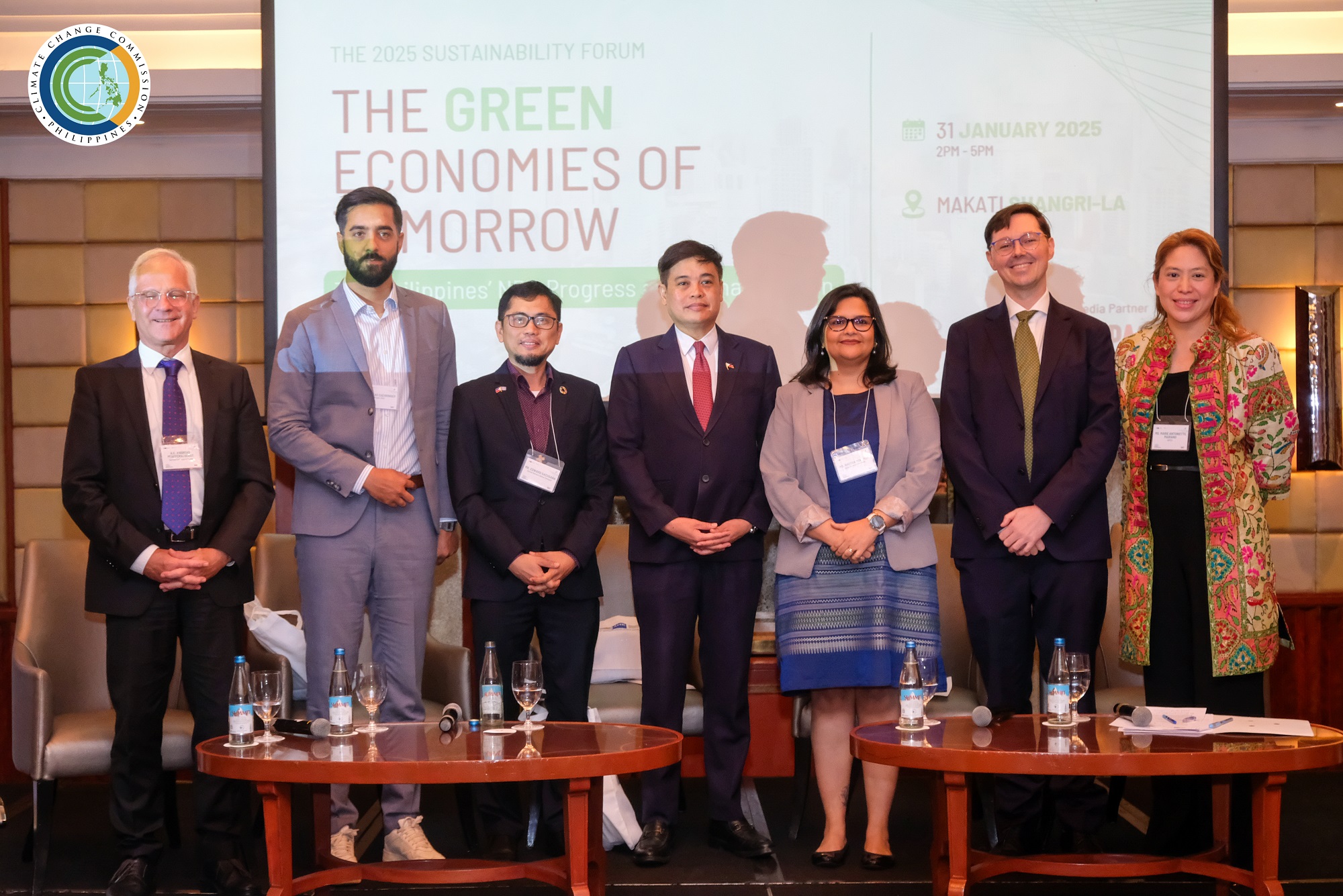
February 06, 2025 Thursday

The Climate Change Commission emphasizes the value of public-private collaboration to achieve the Nationally Determined Contribution targets.
MAKATI CITY, Philippines – The Climate Change Commission (CCC) reaffirmed the Philippines’ commitment to achieving climate action goals through green economy pathways at the “2025 Sustainability Forum: The Green Economies of Tomorrow” recently held in Makati City.
Key leaders from the private sector, government, and international organizations participated in the forum, which focused on accelerating the transition to sustainable, low-carbon economies. The event was organized by the German-Philippine Chamber of Commerce and Industry (GPCCI) in collaboration with the German Embassy.
Discussions emphasized the role of green innovation in fulfilling the Philippines’ Nationally Determined Contributions (NDCs) under the Paris Agreement.
Secretary Robert E.A. Borje, Vice Chairperson and Executive Director of the CCC, reiterated the Philippines’ climate commitment, including the NDC target of a 75% reduction in greenhouse gas emissions compared to a business-as-usual scenario. He outlined key sectors—energy, transport, waste, industry, and agriculture—that are central to the country’s NDC Implementation Plan (NDCIP).
Borje emphasized the need for strong public and private sector collaboration to drive investments in renewable energy, climate-resilient infrastructure, and green technologies. He noted that green industries not only reduce emissions but also boost economic growth and job creation.
“The private and public sectors are crucial partners in this transformation. The shift to renewable energy, electric vehicles, smart cities, and sustainable agriculture are all areas where we can advance,” Borje stated.
He also underscored the importance of a just transition to a green economy, ensuring that workers and communities, especially those in vulnerable sectors, receive adequate support. "This transition must be equitable, inclusive, and resilient, leaving no one behind."
Meanwhile, Marie Antoniette E. Mariano, President of GPCCI, said the event presents an opportunity to foster collective action and develop effective solutions. “This forum is a space for meaningful dialogue, alignment of strategies, and strengthened partnerships to drive lasting impact.”
The forum also served as a platform to explore how the Philippines can align its climate policies with international commitments while also addressing local development priorities. Borje highlighted that the Philippines’ updated NDC, set to be released this year, would reflect evolving priorities and emerging technologies–scaling up both adaptation and mitigation efforts.
He urged the private sector to collaborate with the CCC in advancing climate action through green and climate-smart initiatives, emphasizing that “while the journey will not be easy, collective efforts can make it possible.”
“Together with our partners, let’s push the boundaries of what is possible. Let us continue to work hand-in-hand to turn our climate ambitions into realities, for a climate-smart, climate-resilient, and low-carbon sustainable future,” Borje said.
The “2025 Sustainability Forum: The Green Economies of Tomorrow” brought together leaders from government, business, and civil society, including Christopher Zimmer, Executive Director of GPCCI; H.E. Andreas Faffernoschke, German Ambassador to the Philippines; and Lucas Zaehringer, CEO of Planet 2050. Also present were Edward Gacusana, Executive Director of the United Nations Global Compact, and Naeeda Crishna Morgado, Senior Infrastructure Specialist at the Asian Development Bank.
The CCC remains steadfast in its commitment to collaborate with various stakeholders across sectors to achieve the country’s NDC targets and advance a sustainable, low-carbon economy.
For more information on the CCC’s climate mainstreaming activities, visit www.climate.gov.ph and www.facebook.com/CCCPhl.